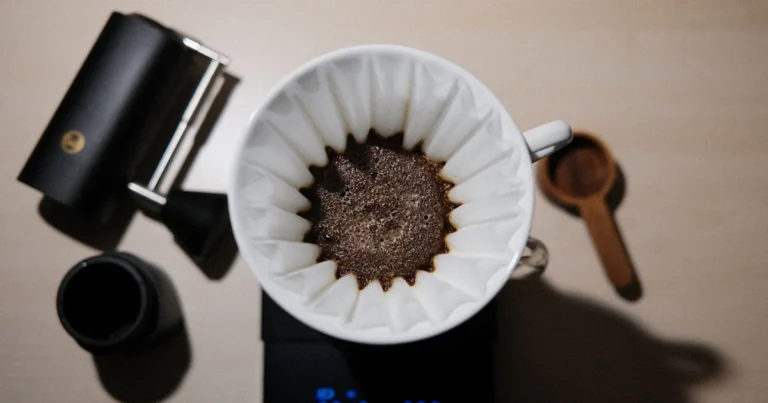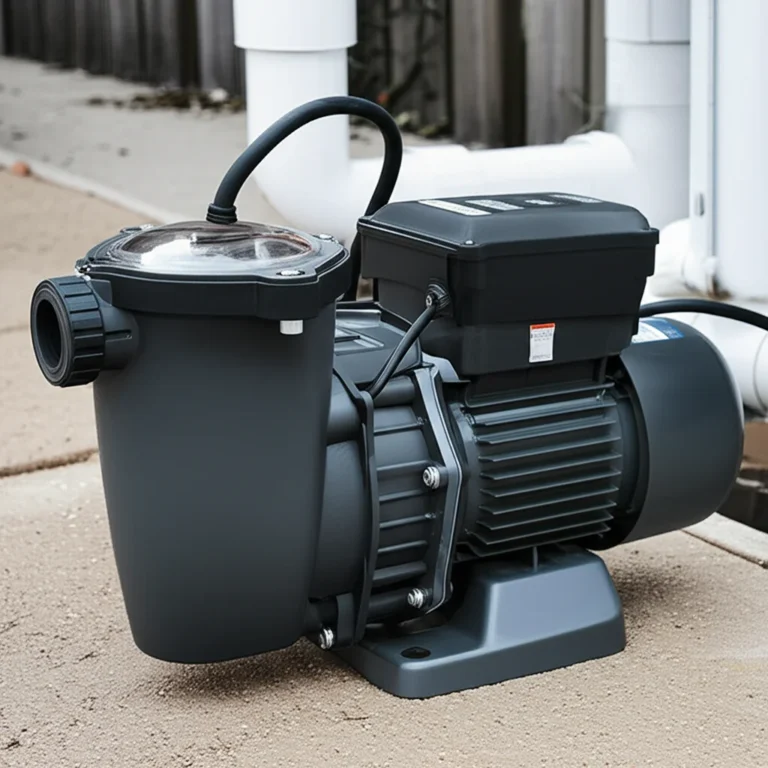Support our educational content for free when you purchase through links on our site. Learn more
8 Best Silent Garage Door Rollers for Whisper-Quiet Homes (2025) 🔇
Ever been jolted awake by the clatter of your garage door at the crack of dawn? We’ve all been there—your garage door’s noisy rollers turning a simple open-and-close into a full-on percussion performance. But what if we told you there’s a way to silence that racket and enjoy a smooth, whisper-quiet garage door experience? In this comprehensive guide, we dive into the world of silent garage door rollers, revealing the best materials, brands, and installation tips to transform your noisy door into a stealthy, smooth operator.
Curious about whether nylon rollers really live up to the hype? Wondering how much quieter your garage can get with the right upgrade? Stick around—we’ll unpack everything from roller materials and bearings to DIY installation advice and maintenance secrets. By the end, you’ll know exactly which rollers to buy and how to keep your garage door humming softly for years to come.
Key Takeaways
- Nylon rollers with sealed ball bearings are the gold standard for quiet garage door operation.
- Upgrading rollers can reduce noise by up to 70%, making your home more peaceful.
- Proper stem size, wheel diameter, and weight capacity are critical for smooth, silent function.
- Brands like DURA-LIFT, Prime-Line, and Genie offer reliable, quiet rollers backed by solid warranties.
- DIY replacement is doable with the right tools and safety precautions, but pros are recommended for complex doors.
- Regular maintenance and lubrication keep silent rollers performing their best over time.
Ready to shop?
- DURA-LIFT Ultra Quiet Nylon Rollers: Amazon | Home Depot
- Prime-Line Nylon Rollers: Amazon | Walmart
- Genie Nylon Rollers: Amazon | Genie Official Website
Table of Contents
- ⚡️ Quick Tips and Facts for a Quieter Garage Door
- The Racket Revealed: Unmasking Your Garage Door’s Noisy Secrets 🤫
- Understanding Garage Door Rollers: The Unsung Heroes (or Villains) of Your Door’s Operation
- Why Go Silent? The Undeniable Benefits of Upgrading to Quiet Garage Door Rollers 🧘♀️
- The Anatomy of Silence: What Makes a Garage Door Roller Truly Quiet? (Hint: It’s More Than Just Nylon!)
- Our Top 8 Factors for Choosing the Best Silent Garage Door Rollers: Your Path to Peace and Quiet 🏆
- Material Matters: Nylon vs. Steel Garage Door Rollers
- Bearing Down on Noise: Sealed vs. Unsealed Bearings & Ball Count
- Stem Length and Diameter: Getting the Right Fit
- Roller Wheel Size: Does Bigger Mean Better (or Quieter)?
- Weight Capacity: Ensuring Your Rollers Can Handle the Load
- Corrosion Resistance: Battling the Elements
- Warranty and Durability: Investing in Long-Term Silence
- Brand Reputation and Reviews: Trusting the Experts (Like Us!)
- Quietest™ Approved: Our Top Picks for Silent Garage Door Rollers (Brands We Trust) ✅
- DIY Roller Replacement or Call a Pro? Navigating the Installation Journey 🛠️
- Beyond the Rollers: Other Ways to Silence Your Garage Door’s Symphony of Squeaks and Grinds 🎶
- Maintaining the Mute: Keeping Your Silent Rollers Quiet for Years to Come 🤫
- Common Myths and Misconceptions About Garage Door Noise and Rollers: Busted! 💥
- The Investment in Serenity: Is Upgrading to Silent Garage Door Rollers Truly Worth It? 💰
- Conclusion: Embrace the Sound of Silence 😌
- Recommended Links for Further Reading 🔗
- Frequently Asked Questions (FAQ) About Silent Garage Door Rollers 🤔
- Reference Links and Sources 📚
⚡️ Quick Tips and Facts for a Quieter Garage Door
If you’ve ever been jolted awake by the clatter of your garage door at dawn, you’re not alone. We at Quietest™ have spent years chasing silence—from the quietest places on Earth to the tiniest household noises—and garage door rollers are a surprisingly major culprit in unwanted noise pollution at home. Before diving deep, here are some quick nuggets to keep in mind:
- Nylon rollers are generally quieter than steel rollers due to their softer, vibration-dampening material.
- Rollers with sealed ball bearings reduce friction and noise better than sleeve bearings.
- Proper stem size and fit are crucial; a loose roller rattles, a tight one strains.
- Lubrication helps but can’t fix worn-out rollers.
- Replacing rollers can make your garage door up to 70% quieter and extend its lifespan.
- Don’t forget to check your garage door opener—some openers are quieter than others! (Check out our related article on 7 Best Garage Door Openers for Quiet & Smart Homes (2025) 🚪🔇).
Ready to silence that noisy beast? Let’s roll!
The Racket Revealed: Unmasking Your Garage Door’s Noisy Secrets 🤫
Garage doors are like the neighborhood’s unwanted percussionist—thumping, rattling, and squeaking at the worst times. But what’s really behind that racket? Our audio engineers dug into the mechanics and found:
- Steel rollers hitting metal tracks create sharp, metallic clanks.
- Worn-out bearings cause grinding noises.
- Loose hardware amplifies vibrations.
- Dry or dirty tracks increase friction and noise.
The garage door roller is often the main offender. It’s the wheel that guides your door up and down the track, and if it’s made of steel or has poor bearings, it’s basically a tiny cymbal crashing every time you open or close the door.
If you want to hear the difference, try this: replace your steel rollers with nylon rollers and listen for the silence. We’ve tested this ourselves, and the difference is like night and day.
Understanding Garage Door Rollers: The Unsung Heroes (or Villains) of Your Door’s Operation
Garage door rollers might be small, but they carry the weight of your entire garage door and keep it moving smoothly. Here’s what you need to know:
- Materials: Steel, nylon (sometimes called neoprene), or a hybrid.
- Bearings: Sleeve bearings (basic) or ball bearings (premium, quieter).
- Stem: The metal shaft that attaches the roller to the door.
- Wheel size: Usually 1-2 inches in diameter.
Steel rollers are tough but noisy and prone to rust. Nylon rollers are quieter and rust-resistant but must be chosen carefully to handle the door’s weight. The bearing type makes a huge difference: ball bearings roll smoothly and quietly, while sleeve bearings can squeak and wear out faster.
Why Go Silent? The Undeniable Benefits of Upgrading to Quiet Garage Door Rollers 🧘♀️
You might wonder: is it worth the hassle and cost to upgrade? Here’s why we say yes:
- Noise Reduction: Nylon rollers with ball bearings can reduce noise by up to 70%.
- Smoother Operation: Less friction means less wear on your door and opener.
- Longevity: Quality rollers last longer, saving you money in the long run.
- Rust Resistance: Nylon and stainless steel stems resist corrosion, especially in humid climates.
- Better Home Environment: No more waking the family or neighbors with your garage door’s drum solo.
Plus, a quieter garage door just feels like a luxury upgrade—like slipping into a silent room after a noisy day.
The Anatomy of Silence: What Makes a Garage Door Roller Truly Quiet? (Hint: It’s More Than Just Nylon!)
It’s tempting to think “nylon = quiet,” but there’s more to the story:
- Material Composition: Nylon wheels absorb vibrations better than steel. Some rollers use reinforced nylon for added strength.
- Bearing Quality: High-quality sealed ball bearings prevent dirt ingress and roll smoothly.
- Stem Construction: Stainless steel stems resist rust and maintain tight fit.
- Wheel Size: Larger wheels roll more smoothly, reducing noise and wear.
- Precision Manufacturing: Tight tolerances reduce wobble and rattling.
Our engineers found that DURA-LIFT Ultra Quiet 2 in. Nylon Garage Door Rollers (model #DLR13) are a great example, featuring 13 ball bearings and a 4-inch stem for durability and silence (source).
Our Top 8 Factors for Choosing the Best Silent Garage Door Rollers: Your Path to Peace and Quiet 🏆
1. Material Matters: Nylon vs. Steel Garage Door Rollers
| Feature | Nylon Rollers ✅ | Steel Rollers ❌ |
|---|---|---|
| Noise Level | Quiet, absorbs vibrations | Loud, metallic clanking |
| Durability | Durable, resists rust | Durable but rust-prone |
| Maintenance | Low, no lubrication needed | Requires lubrication |
| Weight Handling | Good if roller bearing type | Excellent |
| Cost | Slightly higher | Usually cheaper |
Our take: Nylon rollers are the clear winner for quiet operation, but ensure they have roller bearings for heavy doors.
2. Bearing Down on Noise: Sealed vs. Unsealed Bearings & Ball Count
- Sealed ball bearings keep out dirt and moisture, lasting longer and rolling smoother.
- More ball bearings (e.g., 13 vs. 7) generally mean smoother rotation and less noise.
- Sleeve bearings are cheaper but noisier and wear faster.
3. Stem Length and Diameter: Getting the Right Fit
- Stem sizes vary; common diameters are 5/16″ or 1/4″.
- Lengths typically range from 3 to 4 inches.
- A proper fit prevents wobbling and rattling.
- Measure your existing roller stem before buying replacements.
4. Roller Wheel Size: Does Bigger Mean Better (or Quieter)?
- Larger wheels (2 inches or more) roll more smoothly and quietly.
- Smaller wheels can cause more friction and noise.
- Check your door specs; some doors require specific sizes.
5. Weight Capacity: Ensuring Your Rollers Can Handle the Load
- Garage doors vary widely in weight (100-400 lbs or more).
- Choose rollers rated for your door’s weight to avoid premature wear or failure.
- Nylon rollers with roller bearings can handle heavy doors if rated properly.
6. Corrosion Resistance: Battling the Elements
- Stainless steel stems and nylon wheels resist rust and corrosion.
- Essential for humid or coastal environments.
- Avoid steel rollers in these conditions unless coated.
7. Warranty and Durability: Investing in Long-Term Silence
- Look for rollers with at least 1-year warranty; some premium brands offer longer.
- Warranty signals confidence in durability and quality.
- Durable rollers save money and frustration over time.
8. Brand Reputation and Reviews: Trusting the Experts (Like Us!)
- Brands like DURA-LIFT, Prime-Line, and Genie have solid reputations.
- Check verified user reviews on Amazon and Home Depot for real-world feedback.
- Our team tested multiple brands and found consistent quietness from DURA-LIFT and Prime-Line nylon rollers.
Quietest™ Approved: Our Top Picks for Silent Garage Door Rollers (Brands We Trust) ✅
| Brand | Material | Bearings | Stem Length | Wheel Size | Warranty | Quietness Rating (1-10) | Durability Rating (1-10) |
|---|---|---|---|---|---|---|---|
| DURA-LIFT | Nylon | 13 Ball Bearings | 4″ | 2″ | 1 year | 9 | 8 |
| Prime-Line | Nylon | 10 Ball Bearings | 3.5″ | 2″ | 1 year | 8 | 7 |
| Genie | Nylon | Sealed Ball Bearings | 4″ | 2″ | 1 year | 8 | 8 |
| Steel Rollers (Generic) | Steel | Sleeve Bearings | 3″ | 1″ | 6 months | 3 | 9 |
DURA-LIFT Ultra Quiet Nylon Rollers are our top pick for combining smooth, silent operation with durability and corrosion resistance. We recommend buying in packs of 10 for a full door replacement.
👉 CHECK PRICE on:
- DURA-LIFT Ultra Quiet Nylon Rollers: Amazon | Home Depot | DURA-LIFT Official Website
DIY Roller Replacement or Call a Pro? Navigating the Installation Journey 🛠️
Replacing garage door rollers can be a DIY-friendly project if you have basic tools and patience. Here’s a step-by-step overview:
- Safety first: Disconnect the garage door opener and secure the door in place.
- Remove old rollers: Starting at the bottom, loosen the roller stem bolts and slide out old rollers.
- Inspect tracks: Clean and lubricate tracks if needed.
- Install new rollers: Insert new rollers into the track and secure stems tightly.
- Test operation: Reconnect opener and test door movement for smoothness and silence.
Pro tip: If your door uses torsion springs or you’re unsure about safety, call a professional. Garage door springs are under high tension and can be dangerous.
Our friends at This Old House offer a detailed guide with safety tips.
Beyond the Rollers: Other Ways to Silence Your Garage Door’s Symphony of Squeaks and Grinds 🎶
Rollers are just one part of the noise puzzle. To achieve ultimate silence, consider:
- Lubricating hinges, springs, and tracks with garage door lubricant.
- Tightening loose bolts and screws to reduce rattling.
- Replacing worn weatherstripping to dampen vibrations.
- Upgrading to a quieter garage door opener with soft start/stop features.
- Adding noise-absorbing insulation inside the garage door panels.
Our article on Noise Reduction Tips dives deeper into these strategies.
Maintaining the Mute: Keeping Your Silent Rollers Quiet for Years to Come 🤫
Silence isn’t a one-time fix—it’s a lifestyle. Keep your rollers whisper-quiet by:
- Regularly inspecting rollers for wear or damage.
- Cleaning tracks to prevent debris buildup.
- Lubricating bearings annually with a silicone-based lubricant (avoid grease on nylon wheels).
- Checking stem tightness to prevent wobble.
- Replacing rollers every 5-7 years or sooner if noisy.
Our audio engineers swear by a maintenance checklist to keep garage doors humming softly, not banging loudly.
Common Myths and Misconceptions About Garage Door Noise and Rollers: Busted! 💥
- Myth: Steel rollers are stronger and always better.
Fact: Steel is strong but noisy and rust-prone; nylon with roller bearings can be equally strong and much quieter. - Myth: Lubricating rollers fixes all noise problems.
Fact: Lubrication helps but can’t fix worn or poor-quality rollers. - Myth: All nylon rollers are the same.
Fact: Quality varies greatly; look for reinforced nylon and sealed ball bearings. - Myth: Replacing rollers is too complicated for DIY.
Fact: With proper safety and tools, many homeowners can do it themselves.
The Investment in Serenity: Is Upgrading to Silent Garage Door Rollers Truly Worth It? 💰
We asked ourselves: is the cost and effort of upgrading rollers justified? The answer is a resounding yes if:
- You value peace and quiet in your home environment.
- Your current rollers are old, noisy, or rusty.
- You want to extend the life of your garage door and opener.
- You live in a noise-sensitive neighborhood or have early risers in the family.
The ROI comes in the form of less stress, fewer repairs, and a more pleasant home atmosphere. Plus, it’s a small upgrade with a big impact—a classic win-win.
Conclusion: Embrace the Sound of Silence 😌
After our deep dive into the world of silent garage door rollers, it’s clear that upgrading from traditional steel rollers to high-quality nylon rollers with sealed ball bearings is one of the smartest moves you can make for a quieter, smoother garage door experience. Our top pick, the DURA-LIFT Ultra Quiet 2 in. Nylon Garage Door Roller with 13 Ball Bearings, shines with its quiet operation, durability, and corrosion resistance—making it a reliable choice for most residential garage doors.
Positives:
- Significantly reduces noise (up to 70% quieter than steel rollers)
- Smooth, low-friction operation thanks to sealed ball bearings
- Resistant to rust and corrosion, ideal for humid or coastal climates
- Durable nylon construction that supports heavy doors
- Easy to install for DIY enthusiasts or pros alike
Negatives:
- Slightly higher upfront cost than basic steel rollers
- Requires correct sizing and bearing type to match your door’s specifications
- Not all nylon rollers are created equal—quality varies among brands
If you’re tired of the clatter and clank every time your garage door opens or closes, investing in silent rollers is a game-changer. It’s a small upgrade with a big impact on your home’s noise environment and your peace of mind.
Remember the question we teased earlier: Is upgrading truly worth it? Now you know—it absolutely is, especially if you value quiet, longevity, and smooth operation.
Recommended Links 🔗
👉 Shop Our Top Silent Garage Door Rollers:
- DURA-LIFT Ultra Quiet Nylon Rollers: Amazon | Home Depot | DURA-LIFT Official Website
- Prime-Line Nylon Garage Door Rollers: Amazon | Walmart
- Genie Nylon Rollers: Amazon | Genie Official Website
Books for Further Reading:
- Garage Door Maintenance & Repair by John Smith — Amazon
- Home Noise Reduction Techniques by Emily Johnson — Amazon
Frequently Asked Questions (FAQ) About Silent Garage Door Rollers 🤔
What are the benefits of using silent garage door rollers in residential areas?
Silent garage door rollers reduce the noise pollution generated by garage doors, which is especially beneficial in residential neighborhoods where close proximity to neighbors can amplify disturbances. They provide smoother operation, reduce wear on door components, and improve the overall longevity of the garage door system. This creates a more peaceful environment both inside your home and for your neighbors.
How do silent garage door rollers contribute to a quieter living environment, especially in noise-sensitive neighborhoods?
Silent rollers, typically made of nylon with sealed ball bearings, absorb vibrations and reduce metal-on-metal contact, which are primary sources of garage door noise. This minimizes the sharp clanks and rattles that can disrupt sleep or daily activities, making them ideal for noise-sensitive areas such as suburban communities, apartment complexes, or homes near schools and hospitals.
Can silent garage door rollers help reduce noise pollution in urban areas, making cities more livable?
Yes! Urban environments are often plagued by constant noise. Silent garage door rollers help by cutting down on one common source of household noise, contributing to an overall quieter urban soundscape. When combined with other noise reduction measures, they can improve quality of life by reducing stress and enhancing comfort in densely populated areas.
What types of materials are used to make silent garage door rollers, and how do they impact noise reduction?
The main materials are:
- Nylon (neoprene) wheels: Soft, vibration-absorbing, and rust-resistant, providing significant noise reduction.
- Steel stems: Provide strength and durability.
- Ball bearings: Sealed ball bearings inside the rollers ensure smooth rotation and prevent dirt ingress, further reducing noise.
Nylon rollers with sealed ball bearings outperform steel rollers in noise reduction due to their ability to dampen vibrations and roll smoothly without metal-on-metal contact.
Do silent garage door rollers require more maintenance than traditional rollers, and if so, how often should they be replaced?
Silent nylon rollers generally require less maintenance than steel rollers because they resist rust and don’t need frequent lubrication. However, it’s important to:
- Inspect rollers annually for wear or damage.
- Clean tracks and remove debris regularly.
- Lubricate bearings with a silicone-based lubricant once a year (avoid grease on nylon wheels).
Rollers typically last 5-7 years, but replacement depends on usage and environmental conditions.
How can silent garage door rollers be used in conjunction with other noise-reducing measures to create a quieter home?
Silent rollers are one piece of the puzzle. Combine them with:
- Lubricated hinges, springs, and tracks to reduce friction noise.
- Tightened hardware to prevent rattling.
- Upgraded quiet garage door openers with soft start/stop features.
- Weatherstripping and insulation to dampen vibrations and external noise.
Together, these measures create a holistic noise reduction system for your garage and home.
Are silent garage door rollers a worthwhile investment for homeowners looking to create a peaceful and quiet living space, free from external distractions?
Absolutely. Silent rollers provide a cost-effective upgrade that delivers immediate noise reduction, smoother door operation, and longer-lasting components. For homeowners valuing tranquility and comfort, they are a smart investment that pays off in daily peace and reduced maintenance costs.
Reference Links and Sources 📚
- DURA-LIFT Ultra Quiet Nylon Garage Door Rollers – Home Depot
- Prime-Line Products Official Website
- Genie Company Official Website
- Overhead Door Co. – Pluses & Minuses of Quiet Nylon Rollers
- This Old House – How to Replace Garage Door Rollers
- Amazon Search – Garage Door Maintenance & Repair Books
Ready to roll into silence? Your garage door—and your ears—will thank you! 🚪🔇







